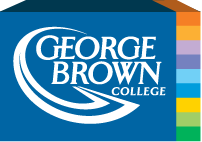About Autism And Behavioural Science Program in George Brown College
FULL DESCRIPTION
It was designed to deepen the expertise in the field of autism and behavioural sciences for application within the children’s sector, and simultaneously create a pool of qualified individuals to meet the needs of service agencies that provide autism or children’s services.
The program enables graduates with university degrees and graduates of Early Childhood Education, Social Service Worker, Child and Youth Care, Developmental Service Worker and similar programs to acquire the specialized skills and expertise they need to work with individuals with a diagnosis of autism.
Students learn about:
- Autism Spectrum Disorder (ASD)
- intervention methods including Intensive Behavioural Intervention (IBI)
- Applied Behaviour Analysis theory (e.g. operant conditioning)
- working with families and treatment teams
- relevant legislation
PROGRAM STANDARDS AND LEARNING OUTCOMES
The graduate has reliably demonstrated the ability to:
- Assess and analyze the characteristics, skills, and behaviour of individuals with ASD to effectively implement evidence-based behavioural interventions.
- Design and implement effective behavioural intervention plans under appropriate supervision and based on the principles of Applied Behaviour Analysis (ABA).
- Evaluate the effectiveness of behavioural intervention plans based on the principles of ABA.
- Work collaboratively with families, teams, service providers, and the broader community to respond to the learning and behavioural needs of individuals with ASD.
- Design, implement, and evaluate as part of a team ABA-based transition plans for individuals with ASD.
- Comply with established ethical principles and professional guidelines
- Provide leadership in the promotion and provision of services to meet the needs of individuals with ASD and their families.
YOUR CAREER
Graduates of the program will be prepared for employment as instructor-therapists with agencies offering ABA for children with Autism Spectrum Disorder, as well as in schools and private family settings.
Graduating from the program may lead to opportunities for advancement into supervisory or consultant roles.
Previous education at the diploma or degree level may also lead to other career opportunities, such as:
- resource teacher
- educational assistant
- program supervisor
Academic qualification equivalents
- Have graduated from senior secondary school or equivalent (those applying for a postgraduate program must have graduated from a university or college).
English language requirements (one of the below):
- IELTS : 6.5, minimum 6.0 in each skill band
- TOEFL : 88 (online) minimum 22 in each skill band
- PTE : 60, overall minimum 55 in each skill band
George Brown College Highlights
| Type of College |
Public |
| Campus Setting |
Urban |
| Location |
Toronto, Ontario, Canada |
| Number of Campuses |
3 + 3 (location/centers) |
| Type of programs |
Certifications, Diploma, Degree, and Continuing Education |
| Number of full-time students |
32,000 + |
| Number of part-time students |
3,000 + |
| %age of International Students |
17% |
| Official Website |
www.georgebrown.ca |
George Brown College The Average Tuition Fees And Other Expenses
| Student Type |
Tuition Fee |
| Canadian students |
2780 - 15310 USD(two semesters) |
| International Students |
11,320 - 23,900 USD(two semesters) |
Tuition fees for some of the popular programs offered by George Brown College are mentioned below
| Course Name |
Tuition Fee(USD) |
| B.Com |
6,052 |
| B.Tech |
7,272 |
| BSN |
5,430 |
| Wireless Network(Postgraduate) |
4,365 |
| Construction Management(Postgraduate) |
6,183 |
| Marketing Management(Postgraduate) |
4,176 |
Residence Fees
Although rents may vary depending on quality and location, most rents listed by the Housing Service are within the following ranges:
| Accommodation Type |
Rent |
| Shared Accommodation |
500 - 700 USD per month |
| One - Bedroom Apartment |
900 - 1,200 USD per month |
| Two - Bedroom Apartment |
1,100 - 1,500 USD per month |
| Three - Bedroom Apartment |
1,300 - 1,800 USD per month |
Meal Plans
The college provide three types of meal plan options its students, the details of which are mentioned below:
| Plan Name |
Cost |
| Annual Swipe & Save Plan |
1700 USD |
| Semester Swipe & Save Plan |
850 USD |
| Swipe & Save Reloadable Card |
400 USD |
